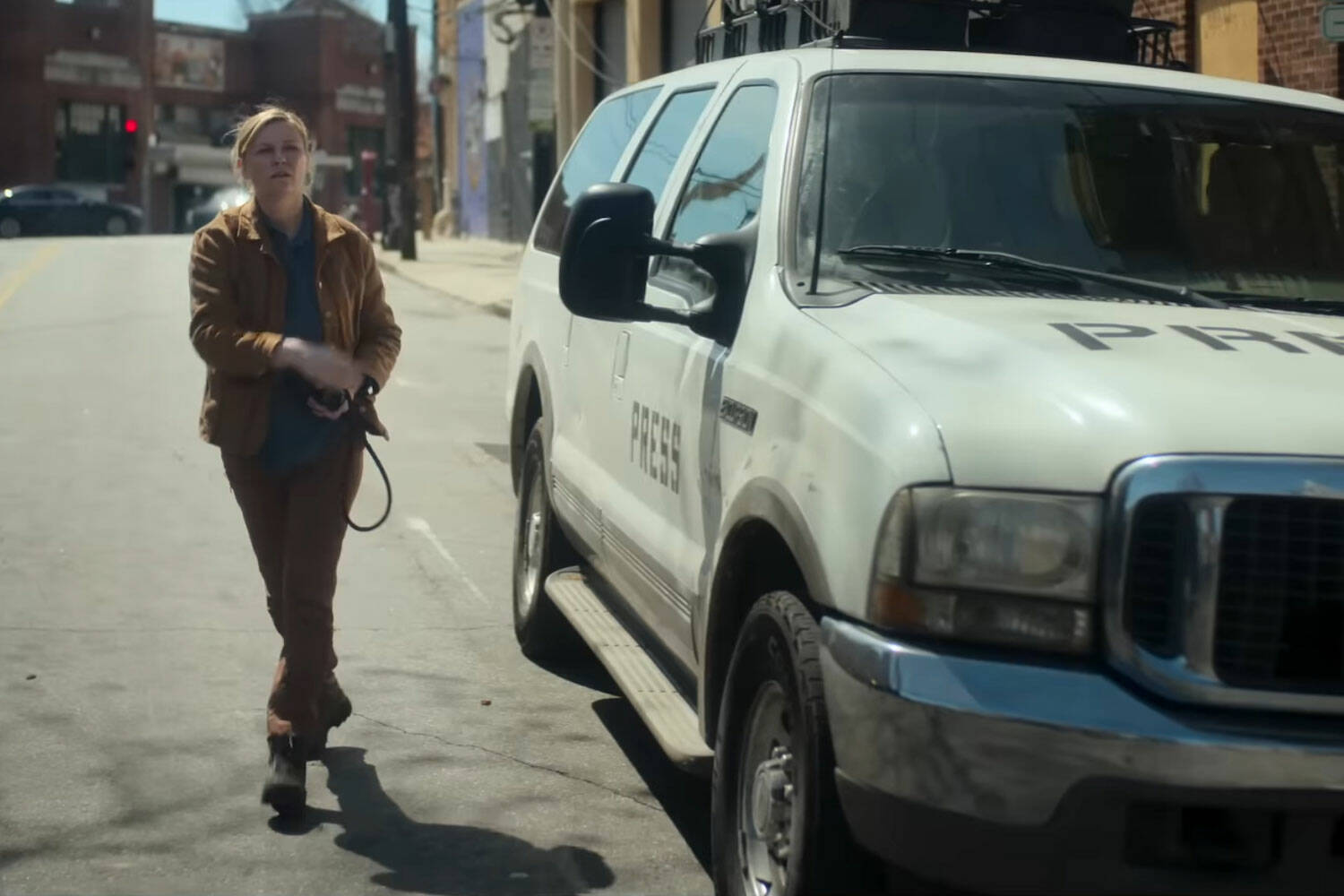If I named my favorite filmmakers, I would probably come quickly to Alex Garland.
That’s odd, because before seeing his latest, “Civil War,” I had only seen two of his films, and only really liked one of them. “Ex Machina” is a film I fell in love with when I dragged my high school friends to the Orca Theater to watch a “cool, new sci-fi movie” in 2014 — I think I was alone in my enjoyment. Garland’s most recent, “Men,” is a haunting, fascinating film with a revolting conclusion that never quite landed with me.
Good or otherwise, something about the dense ideas Garland’s shown a proclivity to grapple with and the gripping pace with which he ratchets tension make for some wild movies, if nothing else.
“Civil War” is every bit the dense and intense thriller Garland is known for. It’s a film that I’m not sure I have a firm grasp on, despite it roiling around in my head now for the better part of a day.
Kirsten Dunst stars as Lee Smith, a hardened photojournalist traveling through a version of the United States twisted by civil war. She’s on a mission to shoot the president — his photo, that is. Joining her are an eclectic crew of media: reporting partner Joel played by Wagner Moura; a veteran reporter from another publication, Sammy, played by Stephen McKinley Henderson; and aspiring photographer Jessie tagging along played by Cailee Spaeny.
The relationships of the core team, road tripping down the coast, are charming, against a backdrop that’s anything but. The crew move in their press van from New York City to Washington, D.C., along their way encountering and documenting violence and conflict as their nation comes apart.
The details or politics of the war are never made clear. The film depicts atrocities with a bleak, uncompromising eye — but it never explains them. In sequences where the reporters follow soldiers as they assault a building, the objective is never revealed.
“Civil War” is a film about humanity. Its most affecting sequences are when the reporters move up with their cameras and capture images of grief, pain or triumph. These images regularly intercut the action — lingering just for a moment on the human toll of the conflict.
War is so secondary as to be not worth detailing, what matters are the ways people are hurt by division — it what appears to me a call for empathy.
Dunst drives the film with a stunning performance as Smith, shown in an early sequence to be grappling with the realities of photographing hurt, but resolute in her belief that telling those stories is valuable. She maintains an icy distance from her subjects. It’s through her relationship with Jessie and the experiences they share on the journey that she interrogates that distance.
“Civil War” isn’t a weird controversy-courting action film, like trailers might make it seem. It’s a heavy, violent film that comments on political and personal divisions through a unique lens of conflict on American soil.
It’s weird and affecting in a way that very well may fail to connect with people, the kind of film that left me in stunned silence as the credits began to roll. It’s a film I’m going to revisit as I continue to grapple with everything it’s trying to say.


